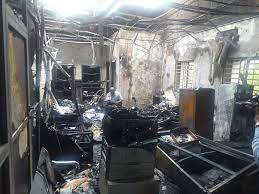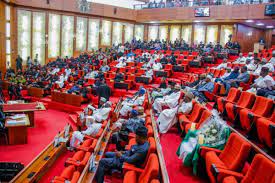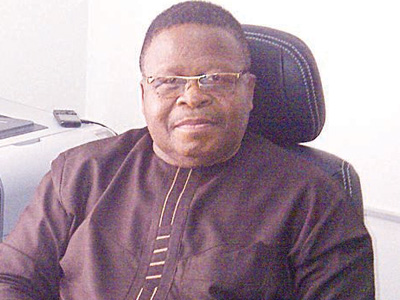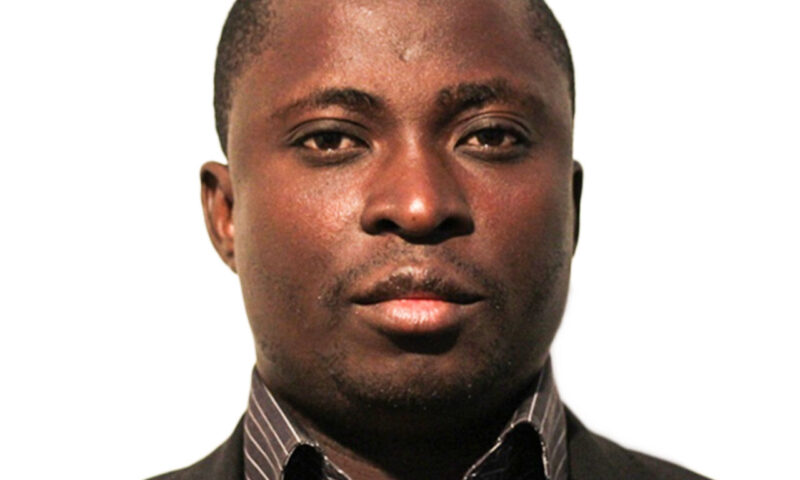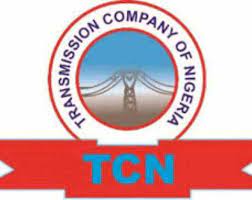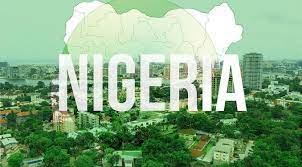Global Rights Nigeria, has said 1, 603 Nigerians were killed on account of mass atrocities in the country between January and March 2021.
The group,in a report tagged ‘Violent Incidents Report: January 2021’,said there has been harvest of abductions, insecurity of security officers, ethnic/communal tensions, unending terrors, and others, which have worsened the insecurity situation across the country.
It added that banditry alone claimed 906 lives, which made it the highest cause of killings in the country and followed by Boko Haram attacks claiming 207 lives in Nigeria while kidnapping recorded 1, 774 abductees within the period under review.
The report said in the first quarter of 2021, Nigeria continued to experience inordinately high incidents of armed violence across the country, with very high body counts.
“Our tracking shows that at least 1603 persons lost their lives to mass atrocities across the country from January to March 2021. “In January, unbridled violence continued to be documented across all regions of Nigeria, with at least 373 deaths linked to these incidents. Abductions nationwide, and pillage attacks in the North featured most prominently.
“In spite of the recent #EndSARS protests against extrajudicial brutality and killings, deaths related to this form of atrocity continued. For example, 5 members of the Road Transport Workers Union were extra-judicially killed, and several others brutalized by state security personnel in Kwara State.
“In a public statement, the Commissioner of Police ordered a full-scale investigation into the crisis, however, till date, there have been no records of arrests or even identification of the perpetrators of this mayhem. “The pseudo-public security outfit – Amotekun has also been implicated in committing gross human rights violations and extrajudicial killings”
It said on January 15, the Oyo State Police Command confirmed the killing of a 21-year-old man, Tosin Thomas, by an Amotekun officer.”
It also said across the country, other forms of attacks recorded were consistent with previous months: pillage of communities in the North, targeted and random abductions, and communal clashes.
It added: “In particular, the North Central states, especially Kaduna and Niger states, pillage of rural districts, kidnappings, and killings by bandits remained a recurring decimal. “Every region of the country contended with targeted and random abductions in this quarter. Whilst highway abductions by crime syndicates were peculiar to the North, and some parts of the South (South/West and South/South), we observed two cases of mass-targeted kidnappings of traders. In January, 27 traders were abducted in Etsako West, Edo. Similarly, 27 Kano traders were kidnapped on the Kaduna highway by gunmen who demanded N27 million ransom, N1 million for each trader.” Global Rights also in the report expressed worry over the numbers of lives lost in the first quarter of the year said it “paints a dreary picture of the declining state of security and increase in human rights infractions across Nigeria. The country is clearly a fragile state, and remains vulnerable to combustion from several forms of atrocities. The question to ask is what are its government and citizens doing to stem the tide?”
The report referred to the country as ‘Land of Impunity’, “The Nigerian state’s penchant of covering multitudes of crimes with the blanket of impunity and amnesty does not augur well for the nation. Rather it has emboldened perpetrators to increase their activities and serves as a motivation for other actors to cash in on the monopoly of violence. Lack of trust in the government to ensure justice is also a motivation for reprisal attacks by aggrieved persons and communities.
“It is instructive that in spite of the hundreds of armed pillages that have occurred in the Northern region, and security agents have barely been able to make arrests, and there have been no prosecutions for these crimes. The same lens would apply to kidnaps, and communal conflicts.” Meanwhile, Global Rights in the report made its stance known on what it called ‘Buying Peace’, which it condemned the payment of ransom to free abductees by government to bandits and other criminal elements. “In spite of its continued denial, several sources have documented attempts by some state governors to placate organized criminal groups – paying fat ransoms to kidnappers, and offering cash-back to bandits in exchange for their weapons and assurance of security.
“However, it is pertinent to state that huge ransoms paid to kidnappers by the government sets a dangerous precedence that will encourage criminality rather than quell it. Organized criminal groups who maim people, rape women, destroy properties and cause severe humanitarian crises should be made to face the wrath of the law rather than be mollycoddled. “The latest mass kidnapping from schools in recent weeks, calls to question the implementation of the “Safe School Initiative” which was launched with millions of Naira invested, after the Chibok girls were abducted to bolster security in schools in Nigeria’s north-eastern region of the country. “Nigeria’s perpetual battle against insecurity, is at a high cost, with both security operatives and civilians paying with their lives. That cost continues to be too high. According to S 14(2)(b) of the Nigerian Constitution, the primary objective of the government is to ensure the security and welfare of citizens. “Despite the government’s claim of being on top of the security situation in the country, the spread and contexts of insecurity have metastasized and shown no signs of abating, black holing the enormous budgetary allocation to security.
“We advise that it will occasion more than security hardware to end insecurity across the country. At the core of the various forms of mass atrocities in Nigeria is impunity, and at the core of impunity is the failure of state institutions to ensure the safety and security of all Nigerians, as well as justice for crimes perpetrated. “Nigeria needs an effective long-term investment in a holistic security architecture that should comprise the efficiency of all aspects of governance and the promotion of human rights. “The State’s continued failure to proactively fulfill and respect human rights has led to mass grievances that are compounding the nation’s insecurity and jeorpadizing its peace and security.”
The report said onslaught on public security agents continued with a notable increase in the targeted number of killings of police officers in the Southern parts of the country – especially the South- East.
Of the 685 deaths recorded in February, 68 were security officers,it said.
“We noted the trend of targeted, unprovoked killings of police officers, the carting away of their weapons, and the burning assets such as police vehicles and stations. The perpetrators of these atrocities and their overarching motive remain unclear. “Terrorist groups in the North East also did not relent in their attacks on security formations. Islamic State West Africa Province (ISWAP) attacked Nigerian police and army units in Magumeri, killed two police officers, and burnt their vehicle along the Maiduguri-Magumeri-Gubio Road.
“The next day the same group attacked a UN agency convoy of between Karito and Monguno, of Borno State, Northeast Nigeria, kidnapping one person- making it the third employee of the United Nations in Nigeria abducted within the past two months by Islamic State West African Province (ISWAP) insurgents.
“At least 10 officers of the Nigerian Army were also killed in an attack launched by Boko haram terrorists in the Marte Local Government Area of Borno State. Twenty civilians were also killed by Boko haram insurgents in Dikwa, Borno State and in Maiduguri, Borno State at least 16 persons were killed by a Boko Haram rocket attack. “In Yobe State, 4 police officers who were protecting the Bayameri area were killed alongside 7 villagers during an attack by Islamic State in West Africa Province (ISWAP) members.”



